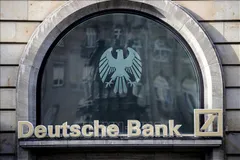
Many securities companies have parent banks backing them, which are trying to persuade depositors to open new accounts to transfer their saving deposits into corporate bonds.
Manipulating cash
All Commercial Banks are now lowering interest rates and the earlier interest rate of 7% for term of more than twelve months has long gone. Even a 24-month term interest rate at some banks is only around 6% per year on small deposits. This interest rate makes savings look insignificant, especially at a time when securities are booming, and gold price is touching the ceiling.
In theory, low interest rates are aimed at reducing dormant cash lying unused in deposit accounts, reducing capital cost for banks and thereby increasing lending more widely to support growth. Many also speculate that savings will now flow into the securities sector. In the last three to six months alone, the Securities Depository Center, which manages the securities investment accounts, has recorded 137,402 new accounts opened by individual investors. Many are depositors who have diverted capital to this investment channel. But that is not all. The fact proves that in the past, when deposit rates were low, deposits in banks were not affected or showed an increase.
In order to keep the flow of savings capital, many banks have stepped up their services to support depositors to invest in bonds. If bonds previously were out of reach, this investment channel for even professional individual investors now buying bonds is much easier.
Investing in bonds is more attractive than savings, because interest rates are significantly higher. For example, bond VPL04202401 of Vinpearl Joint Stock Company, issued on 17 April 2019, is currently being offered at an interest rate of 9.39% per year. Some bonds of Masan and Nui Phao also have interest rates of around 9.1% per year. Convincing depositors to switch from lending to banks in the form of savings deposits, to lending to businesses in the form of purchasing bonds is not too difficult, because within the next three to five years, it is hard to think that businesses like Vinpearl and Masan could go bankrupt. For many bonds with remaining rates of 12 to 14 months, the interest rate is also above 7% to 8%, and it is to be seen if these businesses will be able to pay off their debts in one year.
A great advantage is that many banks also have securities companies, so the connection between bank accounts and trading accounts is good. Savings account balance "floats" right onto the trading platform. The opening of a securities account is even conducted entirely online. Many banks and securities companies also build their own trading software that can be used on smartphones.
Risk factors remain
The corporate bond market has been booming since last year and investors have been startled with huge interest rates of around 20% per year. However, in the first six months of 2020, the issuance scale has increased to a new level. According to the aggregate data of SSI Securities, the total amount of corporate bonds issued in the first six months of 2020 reached about VND 159,000 bn, an increase of 50% compared to the first six months of 2019. The total number of outstanding corporate bonds in circulation are estimated at VND 783,000 bn, equivalent to 12.8% of GDP accumulated in the last twelve months.
SSI also estimates that the amount of corporate bonds held by non-credit organizations and individuals is about VND 385,000 bn, accounting for about 4.2% of the total deposit. Also in the first six months of 2020, individual investors bought nearly VND 22,700 bn of corporate bonds in the primary market, equivalent to 15% of the total issuance, higher than the average of nearly 10% of 2019.
With a boom in the corporate bond market and the very fast participation rate of individual investors, it is clear that banks and securities companies have worked effectively in exploring this very fertile source. If in the past, lots of bonds were often very large and only suitable for professional investment organizations, the agents, such as banks and securities companies now divide them, so that just with tens of million dongs, investors could also join in. The term is also flexibly divided to each month to meet different short-term and long-term needs.
Flexibility in bond investment is also guaranteed by agents with a commitment to buy back or create markets for investors to trade by themselves or through brokers. If investors do not want to trade, holding to maturity is the same as long-term savings with high interest rates.
When approaching customers, consultants of agents target the most attractive factors such as the brand of the issuing business that has been appraised by the bank, the high interest rate, and the ability to withdraw capital flexibly. Because the characteristics of bonds is also a loan, with a fixed profit, it is suitable for depositors who do not want to become risky investors, but only be able to reduce damage when holding money. That is the capital that securities investment channel cannot reach.
Although the risk of investing in corporate bonds is much lower than that of securities, it does not mean they are risk free. Saving depositors have now suddenly turned into bond investors, and most of them still believe in the assurances given by the bank, and trust that the businesses are too big to go bankrupt suddenly. As the bonds are looking seemingly more attractive it is mainly because investors often ignore payment risks as well as transaction fees that have to be paid. Holding bond means that depositors will be creditors of the enterprises, and banks will no longer have legal liability in paying off such debts.




















